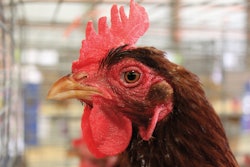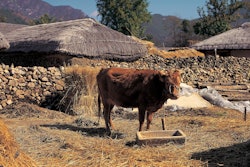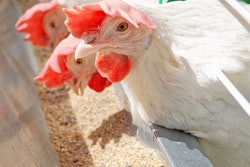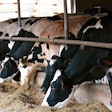
When agents from U.S. Customs and Border Protection (CBP) stop travelers from bringing food items into the United States, sometimes they are met with anger.
But, when agents take the time to explain it is to protect the U.S. food supply from foreign animal diseases (FADs), they generally understand and happily dispose of that food, Joe Scheele, CBP California agriculture liaison said while speaking on June 7 at the World Pork Expo in Des Moines, Iowa.
Part of the CBP’s responsibility is to educate travelers, and “explain the potential for what could happen.”
And while the risk of a disease like highly pathogenic avian influenza (HPAI), virulent Newcastle disease (vND) or African swine fever (ASF) spreading as a result of a pork or poultry product being brought into the country is low, Scheele said, “the consequence is so high that we can’t take that risk.”
Scheele gave one example of a person trying to enter the United States from Mexico, with some eggs in the cargo.
“I know people get mad. I had a guy yelling at me going into California from Mexico. We had an outbreak in San Bernardino of Newcastle disease in the chicken population. It cost like US$10 to eradicate all of the birds that were associated with it,” Scheele explained. “So of course, there are those who are adamant, (saying) ‘I’m eating them.’ I’m like, ‘Are you going to eat the shell?’ You know if they go bad, and they throw it away, it’s going to a landfill, and I’ve seen a couple of birds in landfills, and if they get them, we could have an outbreak.”
He also gave an example of what he tells people when they try to bring a ham sandwich into the country. He said if a person decided that the bread is too soggy and they don’t want to eat the sandwich, they could be tempted to throw it out the window on the drive home.
“You throw it out the window and a feral hog picks it up, and you might have an outbreak of ASF. It could happen just like that. And the consequence could be huge. A couple of nose rubs, a biosecurity lapse somewhere, and we have a problem,” Scheele said.
Those are things that the general population doesn’t realize at first. There are smugglers who just don’t care, but most travelers do care about food safety and security.
“It’s all about prevention,” said Scheele. “If you take the time to educate people and teach them why we regulate them, we can possibly eliminate those that are just bringing accidentally. … You know, generally, 99% are more than happy (to comply).















